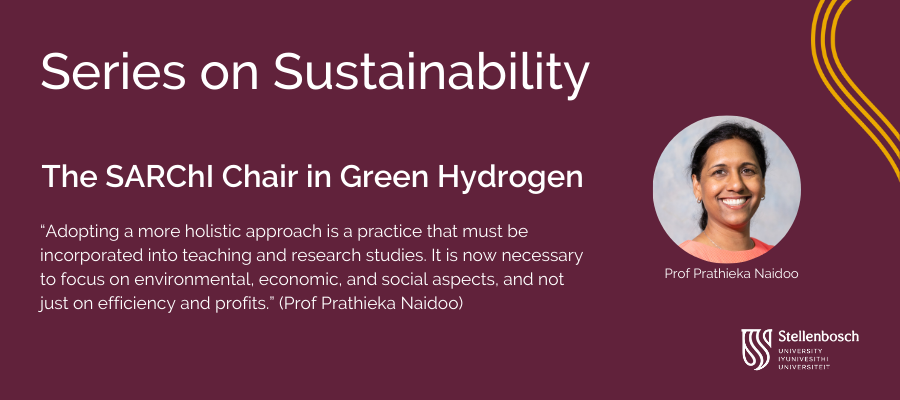
The activities under the SARChI Chair in Green Hydrogen Integration and Transition in the Department of Chemical Engineering focus on the use of renewable clean energy. According to Prof Prathieka Naidoo the projects currently underway assess the sustainability of green/clean hydrogen production across the hydrogen supply chain. “This involves considering access to sustainable water and carbon sources, assessing water usage versus availability, and modelling for energy sufficiency. Brine treatment, waste management, and their disposal are areas of great concern due to their impact on biodiversity and fisheries. Together with other researchers, we are working on electronic waste recycling, focusing on items such as waste magnets, PV panels, and batteries, from which critical metals of value can be recovered, recycled, and reused.”
A positive outcome of the research has also been the establishment of partnerships with stakeholders inside and outside the university. “We partner with EWaste Africa, a company that is commissioning a waste recycling facility in Pietermaritzburg. We are also partnering with other research centres, and industries, such as the School for Climate Studies at SU, and the Thermodynamics Research Unit at the University of KwaZulu-Natal on liquid organic hydrogen carriers, brine treatment and waste management,” says Naidoo.
On the future of sustainability in chemical engineering, Naidoo holds the opinion that there is a far greater emphasis on sustainable processes and products, such that we strive to adopt a circular economy. This involves integrating approaches in the use of materials and resources, minimising waste, and applying sustainable design principles. “Adopting a more holistic approach is a practice that must be incorporated into teaching and research studies. It is now necessary to focus on environmental, economic, and social aspects, and not just on efficiency and profits.”



